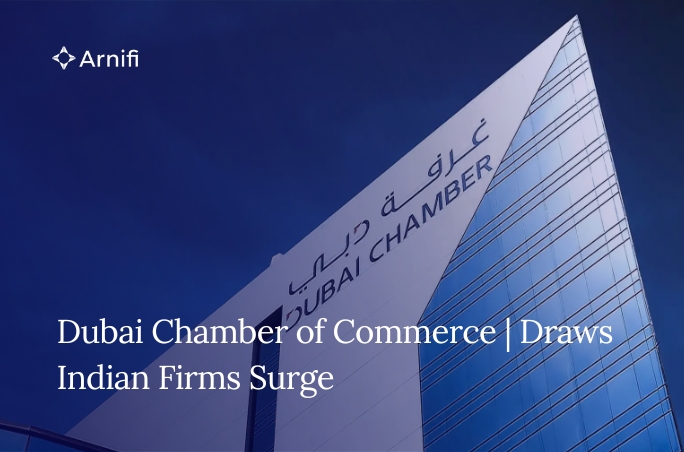Unlocking Opportunities and Overcoming Challenges for SMEs
by Shethana Dec 26, 2024  8 MIN READ
8 MIN READ

Unlocking opportunities and overcoming challenges for SMEs is essential in today’s economy. High value business environment and business-friendly dispensation is also enabling the UAE to expand SMEs, especially with the country’s economic diversification efforts that are creating great opportunities. This article examines the primary industries, issues, and success factors to look for to navigate it in this perpetually changing market.
Thus,PearlDelta aims to tap the UAE at this time of transition to a new phase of socioeconomic development that has seen companies looking to grow their operations in priority areas such as financial and business services; ICT and consumer goods. They have been growing for a long time and controversy in this market appears to be key determinant for success in a dynamic environment with different requirements for problem solving.
Fueling Growth: How UAE Policies and Economic Support for SME Growth
The UAE as one of the states of the oil-rich Middle East has always been an important player in terms of trade and/or mobility. SMEs are critical in its economy as they contributed over 40% to the GDP and represent about two-thirds of the non-oil sector.
Part of its efforts to wean itself off oil and gas, the UAE has targeted the establishment of over 1 million SMEs by 2030. In this regard, many governmental departments such as the Ministry of Finance, Ministry of Economy, and Ministry of Industry and Advanced Technology have introduced the rules for the development of SMEs.
Financially, the UAE has been supporting SMEs through direct funding and building up supporting structures. This effort is backed by enormous reserves of sovereign wealth funds Such funds include the Abu Dhabi Investment Authority ($1 trillion), Investment Corporation of Dubai ($300+ billion), and Mubadala Investment Company ($300+ billion). Such resources promote the UAE goal of developing a strong and diverse economy supported by SMEs.
SME Growth Enabling Sectors in the UAE
The diversification of the UAE economy is opening up great prospects for SMEs especially in the financial sector, ICT and consumer goods. These sectors may be highlighted for their growth prospects, birthed by the government, international market and local consumers.
Financial Services
Both Dubai and Abu Dhabi are acting as financial centres for the region and hosting international standards financial cities such as DIFC & ADGM.These centers include tax benefits and independent regulatory systems, as well as market access and premises, therefore being attractive for SMEs, particularly, in fintech and family businesses.It is also an economically supportive region to SME growth with reference to availability of cheap infrastructure and economic development.
Information communication technology (ICT)
ICT startup and innovations in UAE are gaining new grounds specially the sectors related to Artificial Intelligence, Big Data and Semiconductors. The AI Strategy and Golden Visa program are the key steps of the government stimulating definites and investments into the country. It will also be seen that SMEs in ICT leverage location, regulation, and emerging digital landscape in the UAE.
Consumer Products and Services
While most communication by businesses is in the areas of consumer products and services. The key economic activities identified for the UAE include the hospitality services, tourism, and retail business by virtue of a large number of foreign workers and consistent property market.
Dubai still attracts businesses, but it is not the only emirate where SMEs in these industries can find interesting opportunities and a creative consumer market.
Navigating the UAE Market
It is crucial to take into account the experience of the seven emirates, orientation on free zones with preferences by the type of industry, and cultural difference.
According to these factors, if strategies are designed corresponding to these factors, SMEs are able to open opportunities in this highly fluid and changing market.
To enter this market, SMEs will find the UAE having many opportunities for them, but because of some factors, there is a need to plan on how to enter the market. To more fully appreciate the geographies of each of the seven emirates and cultural and economic differences unique to the area they must prepare themselves. Below are some key considerations that can affect a successful market entry strategy:
Diversity Among the Emirates:
The UAE comprises of seven emirates, and each of these emirates has its prospects in business. However, other emirates such Dubai and Abu Dhabi are more famous; there are other emirates such as Sharjah, Ajman, Umm Al Quwain, Ras Al Khaimah and Fujairah that present different opportunities for SMEs. For instance, the trade history of Sharjah or the fact that Fujairah is one of the main oil centres.
Every emirate has its governance, and as a result they are at different levels of development which means that when intending to enter the market, business will be faced with different FORs.
Role of Free Zones and Economic Hubs:
There are more than forty functioning free zones within the UAE and most of them are in Dubai. Such zones as International Financial Centers, and ones related to trade, sci-tech support, are quite beneficial with full foreign entity ownership and low tax rates. However, a business ought to consider the risk involved in the newer developed areas or areas that have had less development, because the stability for long term operations may not be guaranteed. Cultural Diversity and
Geopolitical Awareness:
The UAE is multicultural society, more than 85 percent of the people in the UAE are expatriates. It also ‘opens doors’ for Opportunities and Overcoming Challenges for SMEs to markets throughout the MENA region, Türkiye, and South Asia. Companies are required to understand and adapt to social cultures of the regions but also update themselves regarding the geopolitical shift within the said regions. Awareness of these dynamics can provide the key to surmounting such problems and unlocking wider regional opportunities.
Challenges for SMEs:
The UAE may, therefore, hold great potential to many companies; however, aren’t they prepared for the challenges such as regulatory factors, governmental interference, and competition? SMEs aspiring to develop or extend their market must overcome the challenges discussed for longevity in the market.
Access to Reliable Data:
While much of the value related data can be found in English, the challenge that a firm can experience the availability of sufficient credibility of the market data. Such a situation may reduce competitiveness when he is struggling to cope with changing regulations or bureaucratic procedures, which usually do not provide accurate data. To overcome this, businesses need to focus on industry level information and in some cases, the information has to be procured locally often in the language of the host country to understand the cultural and regional characteristics.
Government Influence:
Economic investment is largely carried out by the UAE government and tends to focus on sectors such as; financial services, Information and Communications Technology (ICT), and consumption products. On the one hand this provides opportunities but on the other it provides the uncomfortable notion that businesses have to keep up with policy changes, regulatory change etc. The importance of achieving optimality while using governmental support and controlling risks in order to obtain significant outcomes in the long term.
Competition Pressures:
Consumer goods and services will experience intense competition from both local and international companies and firms acrossประ. It is crucial for a business to do surveys and probably field interviews in order to promote market analytical research on customers and the general competition. This is particularly important to enable organizations operate efficiently in a constantly changing market environment. It is apparent that there are a number of challenges faced in the UAE however the risk posed by these challenges are off set by the opportunities that exist for businesses that are in a position to manage them appropriately.
For all those SMEs ready to make a head start into a market for Opportunities and Overcoming Challenges for SMEs and that retains a measure of both innovation and tradition, and that has local and regional growth prospects in abundance, the UAE is the door opening on a vast new universe.
The socio-economic development of the UAE continues to thrive for Opportunities and Overcoming Challenges for SMEs, amid ongoing regional and global volatilities that present SMEs in areas including financial services, ICT, and consumer products. The UAE remains an exciting market and as such, there are often many opportunities for expansion, but there are issues such as the variable opportunities across the seven emirates, focal points of the economy, and culture that need to be taken heed of. To maximise these opportunities, firms have to overcome constraints including: lack of accurate data; prevalence of government involvement; steep competition from other firms. In this regard, it remains crystal clear that with a right research and market strategy, SMEs can create a success platform in one of the most attractive markets in the region.
About Arnifi
Arnifi is digital first Corporate service provider helping companies enter the Middle East region, starting with UAE and Saudi Arabia markets. Founded and backed by professionals from Amazon, Souq and other large companies operating in KSA – the team understands what it takes to succeed as a startup in both UAE and Saudi Arabian markets, apart from going through the setup process multiple times. Arnifi will provide a truly digital experience to entry and scale up of companies both UAE and Saudi Arabia. Discover tailored solutions and strategic partnerships that propel your business forward. Check out at – www.Arnifi.com for more details.
You can also check out products and offerings here.
Top UAE Packages

Related Articles
Top UAE Packages



